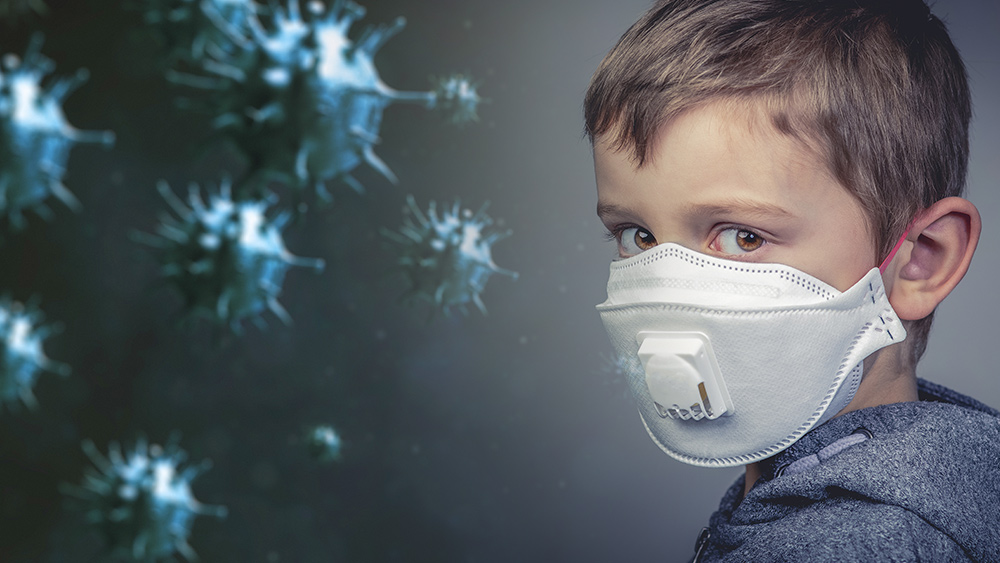Commonly prescribed drugs linked to hearing loss, caution scientists
08/19/2020 / By Virgilio Marin

Researchers from the American Speech-Language-Hearing Association (ASHA) caution that prescription drugs for certain health conditions can cause permanent loss of hearing.
According to ASHA, there are more than 200 medicines in the market that are linked to hearing loss. These include not just prescription medications for serious conditions but also over-the-counter medications such as aspirin.
Medications lead to hearing loss
These drugs are collectively described as “ototoxic,” which literally means “ear poisoning.” Ototoxic drugs often damage the inner ear, resulting in auditory and vestibular dysfunction.
Symptoms of ototoxicity include tinnitus, dizziness and difficulty understanding speech in noise. Furthermore, a person can also experience unsteadiness as the ear plays a crucial role in balancing. Balance can return as the body adapts, but the other symptoms may last longer or are permanent.
According to a review from ASHA, six aminoglycoside medications are potentially influential to hearing loss. Aminoglycosides are antibiotics used to treat a range of microbial infections such as septicemia, respiratory infections, urinary tract infections, skin infections and tuberculosis. In particular, gentamicin, streptomycin and neomycin are highly damaging to the ear.
Furthermore, chemotherapy and diuretic drugs — which are used to treat heart failure and high blood pressure — and over-the-counter drugs, such as aspirin and ibuprofen, are also linked to hearing loss. (Related: Aspirin is Dangerous and Should Not Be Used.)
High doses of aspirin, in particular, are dangerous to ear health.
“Naturally, if a patient self-administers too high of a dose [of aspirin] not advised by their physician, the risk of hearing loss and other side effects increases,” said Kathleen Campbell, an audiologist at the Southern Illinois University School of Medicine.
These over-the-counter drugs, fortunately, are only said to induce temporary hearing loss. As it is, when a person discontinues his intake, hearing can return.
There are also additional factors that contribute to drug-induced hearing loss, according to Campbell.
“Poor nutrition, smoking, a high-fat diet, obesity and other factors contributing to general poor health can elevate the risk of hearing loss in general — including drug- and noise-induced hearing loss.”
Avoiding hearing loss through alternative methods
Before deciding to take any potential ototoxic drug, knowing the side effects of certain medications is important. This means asking your physician about what to expect when taking a certain drug.
Furthermore, alternative methods for coping with or treating a health condition should be considered. Hypertension and cancer are just two of the many diseases often treated with ototoxic drugs. However, there are natural ways to prevent and treat these diseases without using these harmful medications.
For instance, practicing a healthy lifestyle is found to lower cancer risk. One’s lifestyle is a modifiable risk factor for many diseases, which means it is controllable. Being physically active, eating a healthy diet and refraining from smoking are part of a healthy lifestyle.
In fact, studies show that people who exercise regularly have a 50 percent lower risk of developing colorectal cancer than those who do not exercise regularly. Women who engage in moderate to vigorous exercise for more than three hours a week also have a 30 to 40 percent lower risk of breast cancer.
Eating the right foods is essential to good health. Plant-based foods and whole foods provide important nutrients that are linked to a lower risk of disease. Berries, bananas and dark chocolate, for example, are found to help lower blood pressure and the risk of heart disease.
These options demonstrate that there are better and safer ways of dealing with diseases without having to suffer from unwanted side effects.
Know more about alternatives to harmful prescription drugs at AlternativeMedicine.news.
Sources include:
Tagged Under: cancer medications, ear damage, ear health, harmful medicine, hearing loss, heart disease, hypertension, ototoxic drugs, over-the-counter medications, Prescription drugs, side effects, tinnitus





















